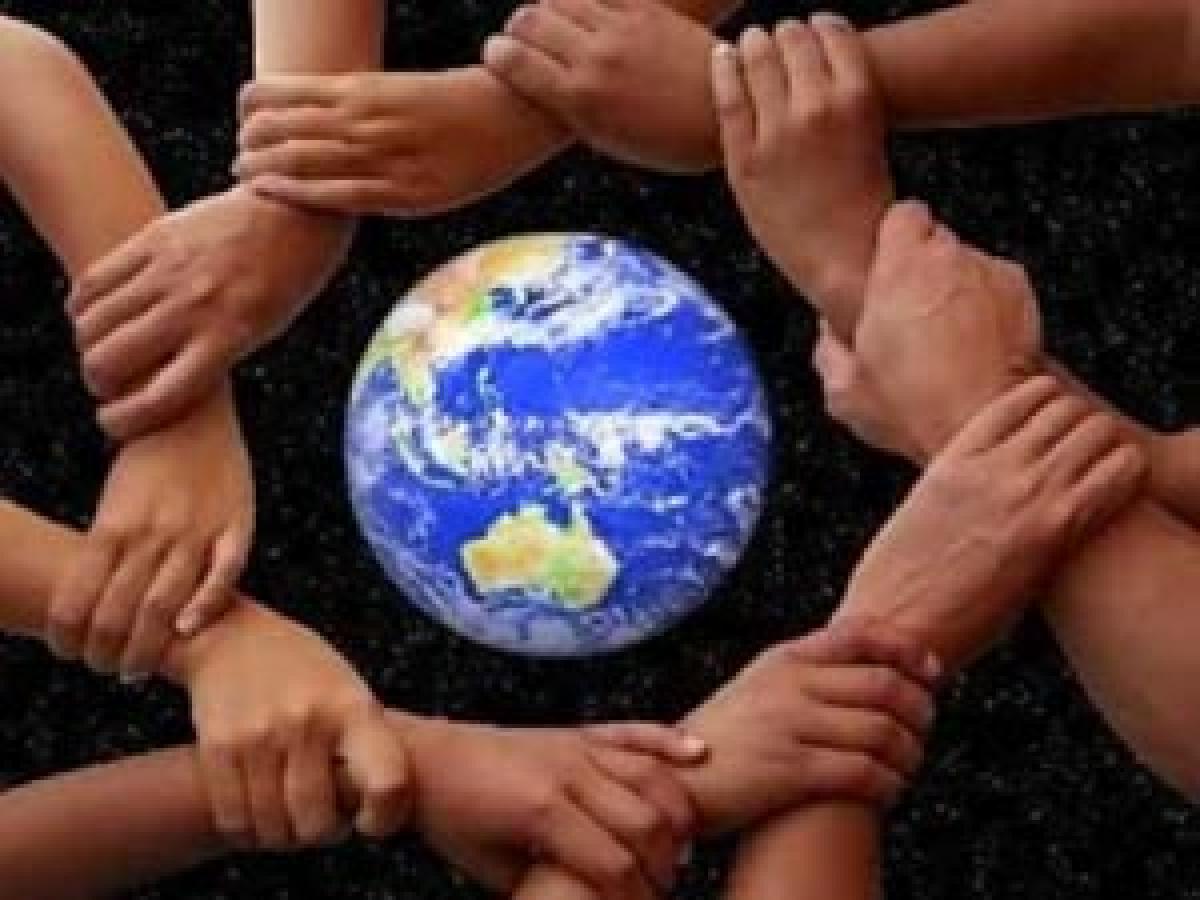Live
- Musk names Microsoft as defendant in amended lawsuit against OpenAI
- Vishwak Sen Shares His Disappointment After Shraddha Srinath Turned Down His Offer
- AP Chambers to organise 3-day Business Expo-2024
- Gold rates in Delhi today surged, check the rates on 15 November, 2024
- Collector Prasanthi emphasises transparency in sand supply
- Don’t be fooled by brokers, MLA advises farmers
- Gold rates in Visakhapatnam today surges, check the rates on 15 November, 2024
- Tirupati: Student commits suicide
- Lenovo launches high-end tablet K11
- Tirupati: Two women die in accident
Just In

The world has become increasingly violent with deaths from conflict at a 25-year high, terrorist attacks at an all-time high and more people displaced than at any time since World War Two, the 2016 Global Peace Index showed on Wednesday.
The world has become increasingly violent with deaths from conflict at a 25-year high, terrorist attacks at an all-time high and more people displaced than at any time since World War Two, the 2016 Global Peace Index showed on Wednesday. The annual index, which measures 23 indicators including incidents of violent crime, countries’ levels of militarization and weapons imports, said intensifying conflicts in the Middle East were mostly to blame.
But beyond the Middle East, the world was actually becoming more peaceful, researchers behind the index said. India was on Wednesday ranked 141 on a Global Peace Index making it less peaceful than countries like Burundi, Serbia and Burkina Faso with violence taking a USD 680-billion toll on its economy in 2015.
In a ranking of 163 countries, compiled by global think tank Institute for Economics and Peace (IEP), Syria has been named the least peaceful, followed by South Sudan, Iraq, Afghanistan and Somalia. India has moved up two position, from 141st last year, but the study said the country’s peace score has “deteriorated” over the past year which means the slight rise in ranking could be due to worse performance of others.
The Global Peace Index (GPI) is an attempt to measure the relative position of nations' and regions' peacefulness.[1] It is the product of the Institute for Economics and Peace (IEP) and developed in consultation with an international panel of peace experts. The list launched in May 2007 is claimed to be the first study to rank countries around the world according to their peacefulness. It ranks 162 countries, up from 121 in 2007.
The study is the brainchild of Australian technology entrepreneur Steve Killelea, founder of Integrated Research, and is endorsed by individuals such as Kofi Annan, the Dalai Lama, archbishop Desmond Tutu, former Finnish President Martti Ahtisaari, Nobel laureate Muhammad Yunus etc The index gauges global peace using three broad themes: the level of safety and security in society, the extent of domestic and international conflict, and the degree of militarization.[2] Factors are both internal such as levels of violence and crime within the country and external such as military expenditure and wars. The GPI has been criticised by Riane Eisler for not including indicators specifically relating to violence against women and children.

© 2024 Hyderabad Media House Limited/The Hans India. All rights reserved. Powered by hocalwire.com







